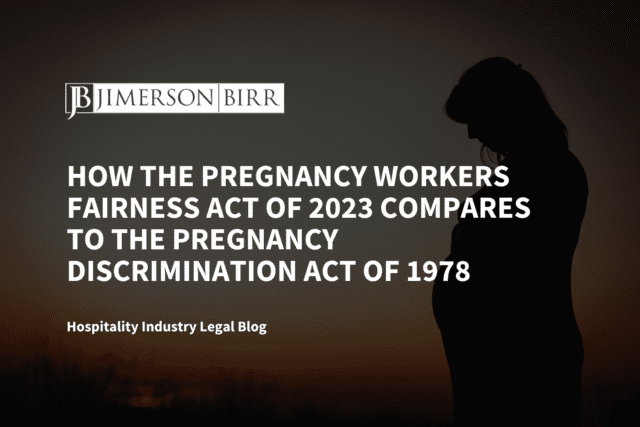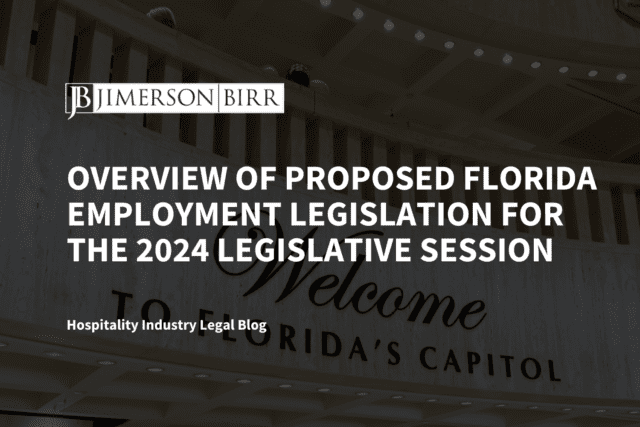How do hospitality worker wage disputes affect businesses?
Hospitality worker wage disputes can significantly impact businesses in various ways. Firstly, such disputes can lead to financial strain on businesses, especially smaller establishments with limited resources. If workers feel they are not being paid fairly or in accordance with labor laws, they may file complaints or lawsuits seeking unpaid wages, overtime pay, or compensation for other labor law violations. This can result in costly legal fees, settlements, or fines imposed by labor authorities, affecting the bottom line of the business.
Moreover, wage disputes can tarnish a business’s reputation and damage its brand image. Negative publicity surrounding allegations of \unfair labor practices can erode consumer trust and loyalty. In today’s interconnected world, news of labor disputes can spread quickly through social media and online review platforms, potentially deterring customers from patronizing the business and leading to decreased sales and revenue.
Furthermore, hospitality worker wage disputes can negatively impact employee morale and productivity. When workers feel undervalued or mistreated, it can lead to low morale, absenteeism, and turnover. High turnover rates result in increased recruitment and training costs and disrupt operations, affecting service quality and customer satisfaction. Additionally, disgruntled employees may engage in workplace activism, such as organizing strikes or boycotts, further disrupting business operations and exacerbating tensions between management and staff.
Need help regarding hospitality worker wage disputes? Schedule your consultation today with a top hospitality attorney.
In Florida, which laws and regulations apply to hospitality worker wage disputes?
In Florida, several laws and regulations govern hospitality worker wage disputes, ensuring fair compensation and labor practices. Some of the key laws and regulations applicable to wage disputes in the hospitality industry include:
- Fair Labor Standards Act (FLSA): This is a federal law that applies to businesses in Florida as well. The FLSA establishes minimum wage, overtime pay, recordkeeping, and child labor standards for employees in the private and public sectors. It also outlines exemptions for certain types of employees, such as executive, administrative, and professional employees. Florida has its own version of the FLSA found here
- Wage Theft Prevention Act: Florida’s Wage Theft Prevention Act aims to prevent wage theft and ensure that employees receive the wages they are owed. The law requires employers to provide employees with written notice of their rate of pay, pay period, and other wage-related information at the time of hire and any time there is a change to this information.
What are common issues regarding hospitality worker wage disputes that lead to litigation?
Common issues regarding hospitality worker wage disputes that often lead to litigation include:
- Minimum Wage Violations: Employers may fail to pay hospitality workers the mandated minimum wage, including tipped employees who must be paid a minimum cash wage, which, when combined with tips, meets or exceeds the minimum wage rate. Disputes arise when employers do not properly calculate or document tips or when they pay below the required minimum wage for non-tipped positions.
- Overtime Pay Violations: Hospitality workers frequently work long hours. However, employers may fail to pay them overtime wages for hours worked beyond 40 in a workweek as required by law. Disputes may arise over misclassification of employees as exempt from overtime or failure to include types of compensation in overtime calculations.
- Off-the-Clock Work: Hospitality workers may perform work-related tasks off the clock, such as setting up or cleaning up before or after their scheduled shifts, attending meetings, or completing administrative tasks. Employers who fail to compensate workers for all hours worked can face wage disputes and litigation over unpaid wages.
- Tip Pooling and Tip Credit Issues: In establishments where tipping is customary, disputes can arise over tip pooling arrangements and the proper distribution of tips among employees. Employers may unlawfully retain a portion of tips, fail to distribute tips to eligible employees, or misapply tip credits, leading to wage disputes and legal action.
- Meal and Rest Break Violations: Florida law requires employers to provide certain meal and rest breaks to employees. Disputes may arise when employers fail to provide these breaks or when employees must work through breaks without proper compensation.
- Misclassification of Workers: Employers may misclassify hospitality workers as independent contractors or exempt employees to avoid paying minimum wage, overtime, or other benefits. Misclassification disputes can lead to litigation over unpaid wages, taxes, and benefits owed to workers.
- Illegal Deductions: Employers may unlawfully deduct wages from employees’ paychecks for uniforms, tools, or other business expenses, reducing workers’ take-home pay below the minimum wage or overtime requirements. Disputes arise when deductions are not authorized by law or exceed allowable limits.
- Failure to Provide Required Notices: Employers are required to provide certain notices to employees, such as wage statements detailing hours worked and wages earned. Disputes may arise when employers fail to provide these notices or provide inaccurate or incomplete information, leading to confusion and potential litigation.
We are value-based attorneys at Jimerson Birr, which means we look at each action with our clients from the point of view of costs and benefits while reducing liability. Then, based on our client’s objectives, we chart a path to seek appropriate remedies.
To determine whether your unique situation may necessitate litigation, please contact our office to set up your initial consultation.
What steps should businesses take to minimize the risk of litigation over hospitality worker wage disputes?
- Know and comply with wage and hour laws: Familiarize yourself with federal, state, and local wage and hour laws, including minimum wage rates, overtime pay requirements, and regulations specific to the hospitality industry. Ensure that your policies and practices align with these legal requirements.
- Accurately classify employees: Properly classify workers as employees or independent contractors and ensure that exempt and non-exempt employees are correctly identified based on their job duties and salary basis. Misclassification of employees can lead to wage disputes and legal liabilities.
- Maintain accurate records: Keep detailed records of hours worked, wages paid, and any deductions or benefits provided to employees. Accurate record-keeping is essential for demonstrating compliance with wage and hour laws and defending against wage disputes.
- Provide clear policies and procedures: Establish clear policies and procedures related to wages, hours, breaks, and timekeeping practices, and communicate them to all employees. Ensure that employees understand their rights and responsibilities regarding wages and hours worked.
- Train managers and supervisors: Provide training to managers and supervisors on wage and hour laws, including proper timekeeping, scheduling, and payroll practices. Managers should be aware of potential wage and hour issues and know how to address them promptly and effectively.
- Monitor compliance: Regularly review your payroll and timekeeping practices to ensure compliance with wage and hour laws. Conduct internal audits and assessments to identify any potential issues or areas for improvement and take corrective action as needed.
- Address complaints promptly: Take any complaints or concerns raised by employees regarding wages or hours seriously and address them promptly and impartially. Establish a clear process for reporting and resolving wage disputes and ensure that employees feel comfortable raising concerns without fear of retaliation.
Frequently Asked Questions
How can hospitality workers determine if they are being paid fairly?
Hospitality workers can determine if they are being paid fairly by comparing their wages and hours worked to applicable federal, state, and local wage and hour laws. They should review their pay stubs, keep records of hours worked, and familiarize themselves with their rights under labor laws.
Can hospitality workers participate in collective action or class action lawsuits for wage disputes?
Yes, hospitality workers may participate in collective action or class-action lawsuits for wage disputes if they believe their employer has violated wage and hour laws on a widespread basis. These lawsuits allow multiple employees to join together to seek unpaid wages, damages, and other remedies.
What protections do hospitality workers have against retaliation for reporting wage law violations?
Hospitality workers are protected from retaliation for reporting wage law violations under federal and state labor laws. Employers are prohibited from retaliating against employees for exercising their rights to report wage violations, file complaints, or participate in legal proceedings related to wage disputes.
Have more questions about a hospitality worker wage dispute-related situation?
Crucially, this overview of hospitality worker wage disputes does not begin to cover all the laws implicated by this issue or the factors that may compel the application of such laws. Every case is unique, and the laws can produce different outcomes depending on the individual circumstances.
Jimerson Birr attorneys guide our clients to help make informed decisions while ensuring their rights are respected and protected. Our lawyers are highly trained and experienced in the nuances of the law, so they can accurately interpret statutes and case law and holistically prepare individuals or companies for their legal endeavors. Through this intense personal investment and advocacy, our lawyers will help resolve the issue’s complicated legal problems efficiently and effectively.
Having a Jimerson Birr attorney on your side means securing a team of seasoned, multi-dimensional, cross-functional legal professionals. Whether it is a transaction, an operational issue, a regulatory challenge, or a contested legal predicament that may require court intervention, we remain tireless advocates at every step. Being a value-added law firm means putting the client at the forefront of everything we do. We use our experience to help our clients navigate even the most complex problems and come out the other side triumphant.
If you want to understand your case, the merits of your claim or defense, potential monetary awards, or the amount of exposure you face, you should speak with a qualified Jimerson Birr lawyer. Our experienced team of attorneys is here to help. Call Jimerson Birr at (904) 389-0050 or use the contact form to schedule a consultation.

We live by our 7 Superior Service Commitments
- Conferring Client-Defined Value
- Efficient and Cost-Effective
- Accessibility
- Delivering an Experience While Delivering Results
- Meaningful and Enduring Partnership
- Exceptional Communication Based Upon Listening
- Accountability to Goals










